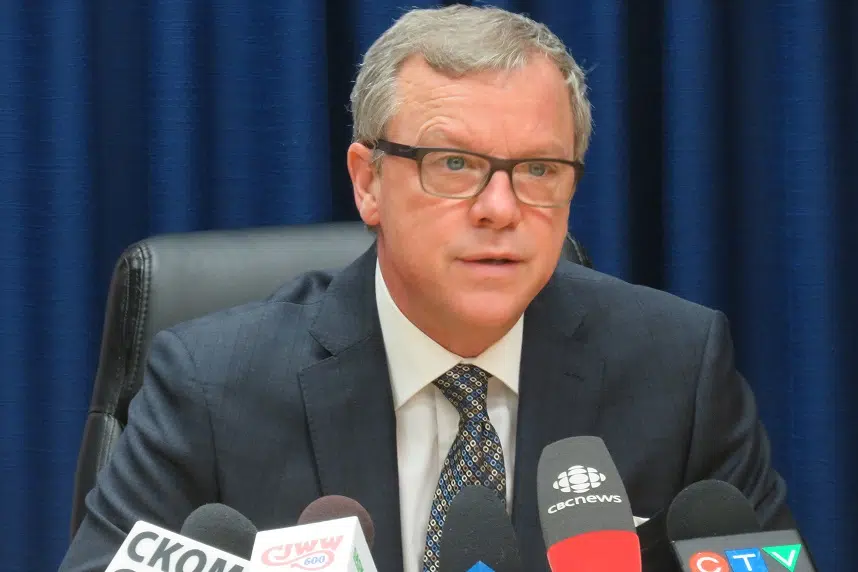Since Thursday’s news that Conservative Leader Andrew Scheer was resigning from his position with the party, people have already started speculating who the new Tory leader will be.
The name of former Saskatchewan Premier Brad Wall has been one of those popping up as a potential candidate to replace Scheer.
However, on Gormley on Friday morning, Wall said he doesn’t have any desire to run in elected politics anymore.
“I’ve seen some of that on social media and I’ve had a few emails and I’m grateful for that. I’m honoured that people think I could contribute in that way. But after 18 years in elected politics, I’m well and truly done,” said Wall, who stepped down as premier in February of 2018.
“I’m going to continue to comment on issues that I feel strongly about and write like I do every now and then in the National Post and have a social media platform but I’m not running for politics again.”
Wall said he was caught off guard by Scheer’s announcement and even momentarily thought he was being pranked when a reporter called him to comment.
“Most people thought he wouldn’t survive a party review in a few months here in 2020 but I think the timing of this was a surprise,” Wall said before acknowledging some of the good Scheer has done for the party despite the party’s less-than-ideal results from October’s election.
“The party is in many ways in better shape than he found it. There’s more members, the fundraising is in a good spot and of course he had knocked down the Liberals to a minority level. I think he has a lot he can look back on and feel good about. His party should be thankful for it too.”
Wall addressed the difficulty that comes along with the Conservative leadership having to bridge gaps between many conflicting viewpoints within the party. He says the next leader is going to have to get back to the party’s roots.
“The successful leadership candidate is going to have to demonstrate that they can get through the new identity politics piece and stay on narrative, and hopefully the narrative for any Conservative party is the economy. We lost that focus in this last campaign. It was almost all about identity politics,” said Wall, referencing the amount of weight Scheer put on old speeches and the Justin Trudeau blackface scandal.
“I think typically when elections are not about substantive issues, especially economic issues, that’s a disadvantage most of the time for the Conservative side.”
After repeating that he isn’t in any way interested in running, Wall gave a name of the person he would support as the next Conservative leader.
“I’m not giving away any names that I would support in a leadership but her initials are Rona Ambrose. I think she gives that party the best chance to bring all of those different groups together,” he said.
“When she was interim leader recruiting people to think about running the last time, I said to her that she should be the candidate, but she just had no interest. She wanted to be done, as well, with elected politics. But I hope that’s changed.”
Wall said there is some in the party who want to move away from leaders from the west after Stephen Harper, from Calgary, and Scheer, from Regina. But Wall doesn’t think that is the right call with the growing separatist movement in Alberta and Saskatchewan.
“I think the fact that (Ambrose) is from Calgary would be a positive because we may have a wexit federal party splitting the vote on that side of things,” he said.
“And I think a strong western voice would be important as well for the next leader of the Conservatives.”







